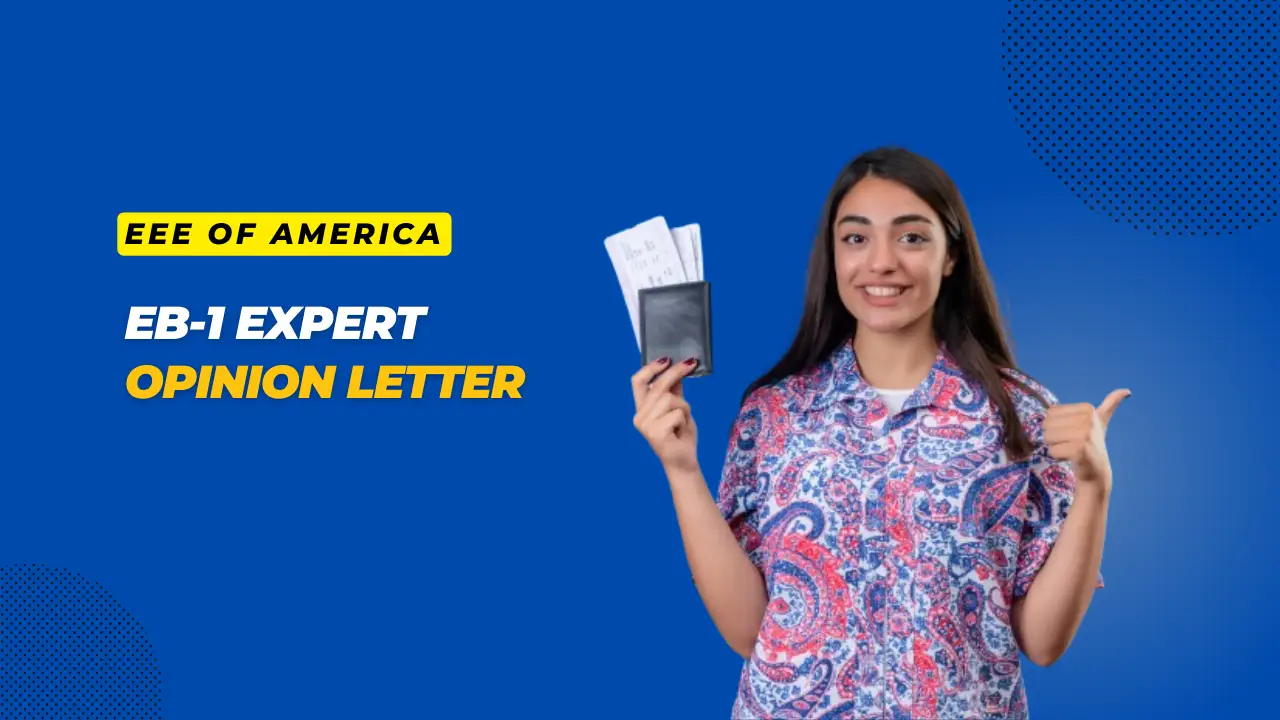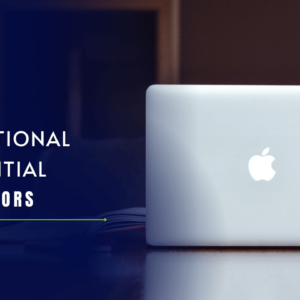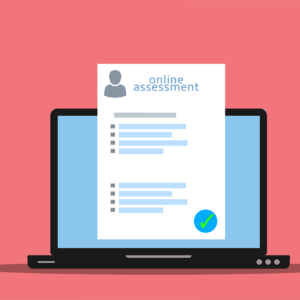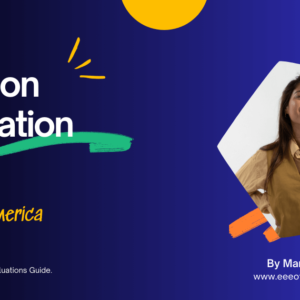Navigating the complex world of U.S. immigration can be daunting, especially when it comes to the EB2 NIW process. The EB2 NIW, or the EB-2 visa with a National Interest Waiver, is a unique pathway for foreign nationals with advanced degrees or exceptional abilities.
This comprehensive guide will provide you with a thorough understanding of the EB2 NIW process, breaking down the requirements, steps, and nuances. We aim to offer valuable insights into how to strengthen your application. Whether you’re a potential applicant, an immigration attorney, or an HR professional, this guide is designed to help you navigate the EB2 NIW process effectively.
Understanding the EB2 NIW (National Interest Waiver)
The EB2 NIW, or EB-2 visa with a National Interest Waiver, offers a distinctive pathway to U.S. immigration. Classified under the second preference of employment-based visa categories, this visa is typically reserved for professionals with advanced degrees or individuals with exceptional ability. The National Interest Waiver (NIW) adds an important dimension to this category, allowing certain individuals to bypass the labor certification process. This significant advantage can expedite the immigration process.
So, what exactly is the EB2 NIW, and who qualifies for it?
What is the EB2 NIW?
The EB2 NIW is a U.S. visa category designed for foreign nationals who possess advanced degrees or demonstrate exceptional ability. The “NIW” stands for National Interest Waiver, which allows eligible individuals to bypass the labor certification process. Typically, this process requires a job offer from a U.S. employer, who must prove that there are no qualified U.S. workers for the position.
However, with the NIW, these requirements are waived, provided the individual’s work is deemed to be in the national interest of the United States. This waiver significantly streamlines the immigration process for qualified applicants.
Who Qualifies for the EB2 NIW?
Qualifying for the EB2 NIW involves meeting certain criteria.
These include:
- Possessing an advanced degree (or its equivalent) or demonstrating exceptional ability in the sciences, arts, or business.
- Showing that your proposed endeavor has both substantial merit and national importance.
- Demonstrating that you are well-positioned to advance the proposed endeavor.
- Proving that it would be beneficial to the United States to waive the job offer and labor certification requirements.
It’s important to note that the term “national interest” is not explicitly defined in U.S. immigration law.
Therefore, it’s up to the applicant to convincingly argue that their work serves the national interest.
This often involves demonstrating the potential for job creation, economic growth, or advancements in their field.
In the next sections, we’ll delve deeper into the EB2 visa requirements and the application process.
EB2 Visa Requirements
The EB2 visa category is designed for professionals with advanced degrees or individuals with exceptional ability.
To qualify, applicants must meet certain requirements.
These requirements vary depending on whether the applicant is applying under the advanced degree subcategory or the exceptional ability subcategory.
For the advanced degree subcategory, applicants must possess a U.S. advanced degree or its foreign equivalent.
Alternatively, they can have a U.S. bachelor’s degree or its foreign equivalent, plus five years of progressive post-baccalaureate work experience in their field.
For the exceptional ability subcategory, applicants must demonstrate a degree of expertise significantly above that ordinarily encountered in their field.
Educational and Professional Credentials
The EB2 visa category places a strong emphasis on the applicant’s educational and professional credentials.
For the advanced degree subcategory, the applicant’s degree must be in the field in which they intend to work.
For the exceptional ability subcategory, the applicant must provide evidence of at least three of the following:
- An official academic record showing the degree, diploma, certificate, or similar award from a college, university, school, or other institution of learning relating to the area of exceptional ability.
- Letters documenting at least ten years of full-time experience in the occupation being sought.
- A license to practice the profession or certification for a particular profession or occupation.
- Evidence that the alien has commanded a salary or other remuneration for services that demonstrates exceptional ability.
- Membership in professional associations.
- Recognition for achievements and significant contributions to the industry or field by peers, government entities, professional or business organizations.
Exceptional Ability and Its Evaluation
Exceptional ability refers to a degree of expertise significantly above that ordinarily encountered.
In the context of the EB2 visa category, it applies to the sciences, arts, or business.
The evaluation of exceptional ability is not a straightforward process.
It involves a careful review of the applicant’s qualifications, achievements, and contributions to their field.
This often includes an assessment of the applicant’s academic record, work experience, professional memberships, and recognition by peers or organizations in their field.
In the next section, we’ll explore the EB2 NIW application process in detail.
The EB2 NIW Application Process
The EB2 NIW application process is complex and requires careful preparation.
It involves several steps, each with its own set of requirements and deadlines.
The first step is to determine eligibility.
This involves a thorough review of the applicant’s qualifications and achievements to ensure they meet the criteria for the EB2 NIW category.
Once eligibility is confirmed, the next step is to prepare the petition.
This involves gathering the necessary documentation, drafting a compelling petition letter, and completing the required forms.
The petition is then submitted to U.S. Citizenship and Immigration Services (USCIS) for review.
If the petition is approved, the applicant can then apply for a green card.
This involves another set of forms, fees, and documentation, as well as a medical examination and an interview.
Throughout the process, it’s important to stay informed about any changes in immigration law or policy that could affect the application.
Step-by-Step Guide to Filing Your Petition
Filing an EB2 NIW petition involves several steps.
Here is a step-by-step guide to help you navigate the process:
- Determine your eligibility: Review the criteria for the EB2 NIW category to ensure you qualify.
- Gather your documentation: This includes academic records, work experience certificates, letters of recommendation, and evidence of your achievements.
- Draft your petition letter: This letter should explain why you qualify for the EB2 NIW category and how your work serves the U.S. national interest.
- Complete the required forms: This includes Form I-140, Immigrant Petition for Alien Worker, and Form ETA-750B, Statement of Qualifications of Alien.
- Pay the filing fee: The current fee for Form I-140 is $700.
- Submit your petition: Send your completed forms, petition letter, documentation, and fee to the appropriate USCIS service center.
Required Documentation for the EB2 NIW
The documentation required for the EB2 NIW petition serves to demonstrate the applicant’s qualifications and the national interest of their work.
Here is a list of the key documents you should include in your petition:
- Academic records: These should show that you have an advanced degree or its equivalent.
- Work experience certificates: These should document at least five years of progressive post-baccalaureate work experience in your field.
- Letters of recommendation: These should come from peers, colleagues, or other professionals in your field who can attest to your qualifications and the national interest of your work.
- Evidence of achievements: This could include awards, honors, publications, or other recognitions in your field.
- Petition letter: This letter should explain why you qualify for the EB2 NIW category and how your work serves the U.S. national interest.
In the next section, we’ll delve into the EB-2 NIW Credential Evaluation, a critical component of the application process.
EB-2 NIW Credential Evaluation
The EB-2 NIW Credential Evaluation is a crucial part of the application process.
It involves an assessment of the applicant’s academic and professional qualifications.
This evaluation is used to determine if the applicant’s foreign credentials are equivalent to a U.S. advanced degree.
It also assesses whether the applicant’s work experience can be considered as part of their qualifications.
The evaluation must be conducted by a recognized credential evaluation service.
Importance of Credential Evaluation
The credential evaluation plays a key role in the EB-2 NIW process.
It provides USCIS with a clear understanding of the applicant’s qualifications.
Without it, USCIS may not be able to accurately assess the applicant’s eligibility for the EB-2 NIW category.
Therefore, it’s crucial to obtain a thorough and accurate credential evaluation.
How to Obtain a Credential Evaluation
Obtaining a credential evaluation involves selecting a reputable evaluation service.
The service will require copies of your academic records and professional certificates.
They may also require a detailed description of your work experience.
Once they have all the necessary information, they will conduct the evaluation and provide a report.
This report should be included with your EB-2 NIW petition.
Legal Criteria and Demonstrating National Interest
The EB2 NIW process involves meeting specific legal criteria.
These criteria are designed to ensure that granting the waiver serves the national interest.
The key legal framework used to assess EB2 NIW petitions is the three-pronged Dhanasar test.
This test was established by the Administrative Appeals Office (AAO) in the precedent decision, Matter of Dhanasar.
It replaced the previous NYSDOT standard and is now the guiding principle for EB2 NIW adjudications.
Understanding and effectively addressing these criteria is crucial for a successful EB2 NIW petition.
The criteria focus on the merit of the applicant’s work, its national importance, and the benefit of waiving the job offer and labor certification requirements.
The Three-Pronged Dhanasar Framework
The Dhanasar framework consists of three prongs that an applicant must satisfy.
First, the applicant must demonstrate that their proposed endeavor has both substantial merit and national importance.
Second, they must be well-positioned to advance the proposed endeavor.
Third, it must be shown that, on balance, it would be beneficial to the United States to waive the job offer and labor certification requirements.
Each prong presents its own challenges and requires careful preparation and presentation of evidence.
Proving Substantial Merit and National Importance
Proving substantial merit and national importance is the first prong of the Dhanasar test.
This does not necessarily require showing potential economic impact.
It could be demonstrated through a variety of fields such as science, technology, culture, health, or education.
The endeavor’s importance should be national in scope, meaning it has significance beyond a particular locality.
This could involve showing potential widespread impact or contribution to a national goal or priority.
Strategies for a Successful EB2 NIW Petition
A successful EB2 NIW petition requires strategic planning and careful preparation.
The goal is to present a compelling case that not only meets the legal criteria but also stands out among other petitions.
This involves showcasing your achievements, demonstrating the national importance of your work, and effectively communicating your future contributions to the U.S.
It also requires addressing any potential weaknesses in your case and preemptively responding to questions that USCIS might have.
A well-prepared petition can significantly increase your chances of approval and expedite the process.
Here are some strategies to consider.
Crafting a Compelling Petition Letter
The petition letter is a critical component of the EB2 NIW application.
It serves as your opportunity to tell your story, highlight your achievements, and explain how your work serves the national interest.
The letter should be clear, concise, and persuasive, providing a compelling narrative that ties together all the evidence and arguments in your petition.
Expert Letters and Peer Reviews
Expert letters and peer reviews can significantly strengthen your EB2 NIW petition.
These letters provide third-party validation of your achievements and the national importance of your work.
They should come from recognized experts in your field, who can attest to your contributions and their significance.
The letters should be detailed, specific, and clearly explain the expert’s qualifications and the basis for their opinion.
Handling the Legal Complexities
The EB2 NIW process involves numerous legal complexities.
Understanding these complexities is crucial to successfully navigate the process and avoid potential pitfalls.
This includes understanding the legal criteria for the national interest waiver, the burden of proof, and the legal standards applied by USCIS.
It also involves dealing with Requests for Evidence (RFEs), maintaining legal status while the petition is pending, and handling the transition from non-immigrant to immigrant status.
Legal representation can be invaluable in navigating these complexities.
Dealing with Requests for Evidence (RFEs)
Requests for Evidence (RFEs) are common in the EB2 NIW process.
USCIS issues an RFE when it needs more information or evidence to make a decision on your petition.
Responding to an RFE can be challenging, as it requires a thorough understanding of the legal issues involved and the ability to provide persuasive evidence.
Legal Representation and Its Benefits
Legal representation can significantly increase your chances of success in the EB2 NIW process.
An experienced immigration attorney can guide you through the process, help you prepare a strong petition, and respond effectively to RFEs.
They can also help you navigate the legal complexities and ensure that your petition complies with all USCIS regulations and requirements.
After the EB2 NIW Approval
Once your EB2 NIW petition is approved, the journey is not over.
There are still important steps to take to secure your green card and maintain your legal status in the U.S.
This includes adjusting your status, attending visa interviews, and understanding the implications for your employment mobility.
Each of these steps has its own requirements and nuances that need to be navigated carefully.
Adjusting Status and Visa Interviews
Adjusting your status involves filing an I-485 application to register permanent residence or adjust status.
This process includes attending a visa interview, where you will be asked questions about your application and your plans in the U.S.
Maintaining Legal Status and Employment Mobility
Maintaining your legal status while your I-485 application is pending is crucial.
It’s also important to understand the implications of your EB2 NIW approval for your employment mobility, including the potential for job changes and promotions.
Conclusion and Final Thoughts
Navigating the EB2 NIW process can be a complex and challenging journey.
However, with a thorough understanding of the requirements, a well-prepared application, and a strategic approach, it is possible to successfully secure a national interest waiver and pave the way for your U.S. green card.
Remember, every case is unique, and what worked for one applicant may not necessarily work for another. Therefore, it’s crucial to tailor your application to your specific circumstances and strengths, and to stay informed about the latest developments in U.S. immigration law and policy.




